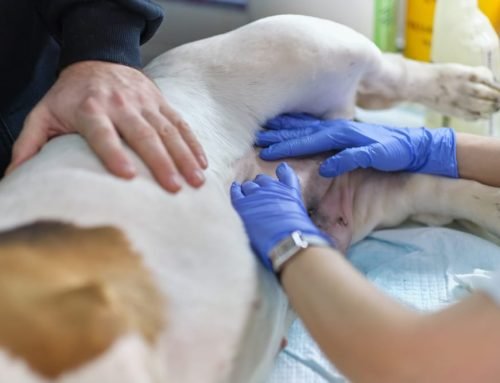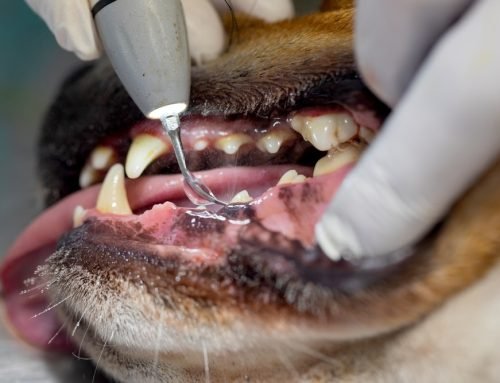The Importance of Annual Bloodwork for Early Disease Detection
Life moves quickly. One day you notice your jeans feel a little tighter, your child is suddenly taller than you, or you catch a glimpse of new wrinkles in the mirror. These changes happen slowly—so slowly that we often don’t notice them until they’re undeniable.
It’s the same with our pets.
Maybe they’re sleeping a little more. Gaining a pound or two. Drinking just a bit more water than usual. On their own, these changes may seem insignificant. But over time, they can point to something much bigger happening beneath the surface.
At St. Petersburg Animal Hospital & Urgent Care, we use annual bloodwork as a tool to listen to what your pet can’t say. It gives us an objective, detailed view of their internal health—long before symptoms appear. And for you, it brings peace of mind that you’re truly doing everything you can to care for them well.
Why Bloodwork Is So Valuable—Even When Your Pet “Seems Fine”
Pets are incredible at hiding discomfort. It’s part of their nature. But that also means we may not realize something’s wrong until the disease is already well advanced.
Annual blood testing helps us:
- Catch early signs of kidney or liver disease
- Monitor thyroid and metabolic changes
- Detect diabetes or immune dysfunction
- Establish a baseline for what’s normal for your pet—so we can spot subtle shifts over time
The AVMA and Pet Health Network both emphasize how much more effective—and affordable—treatment becomes when issues are caught early. And that’s exactly what annual bloodwork makes possible.
What’s Included in a Standard Blood Panel?
A typical annual panel includes:
- Complete Blood Count (CBC): Helps detect infections, inflammation, anemia, and clotting disorders.
- Blood Chemistry Panel: Evaluates liver and kidney function, blood sugar, electrolytes, and protein balance.
- Thyroid Panel (T4): Especially important for senior pets or breeds prone to thyroid issues.
- Electrolyte & Mineral Profile: Monitors hydration, muscle function, and organ stress.
Together, these tests give us a clear, full-body picture of how your pet’s systems are working—from the inside out. Merck’s veterinary testing overview explains the clinical value of each diagnostic category.
What We Catch With Bloodwork—That You Can’t See
Here’s how subtle changes can tell a deeper story:
1. Hypothyroidism in Dogs
Slow weight gain, a dull coat, and more naps than usual may not raise red flags at home—but they could signal a sluggish thyroid.
2. Chronic Kidney Disease in Cats
This condition creeps in slowly. You might notice more trips to the litter box or that your cat’s water bowl empties faster. But bloodwork can catch kidney decline before those signs even appear.
3. Diabetes in Pets
Increased thirst, appetite, and weight changes might not raise alarms at first. But an elevated glucose reading during routine bloodwork can be life-changing.
4. Hyperthyroidism in Cats
Many cat owners are surprised to learn that losing weight despite a healthy appetite can be a warning sign. A quick T4 test can provide clarity.
5. Other Detectable Conditions
Bloodwork can also uncover:
- Liver inflammation
- Pancreatitis
- Early heart disease
- Immune-mediated conditions
- Cancer markers or abnormal cell counts
The key takeaway? Your pet’s labwork speaks when they can’t. It tells us what’s changing—quietly, beneath the surface.
A Personalized Roadmap for Your Pet’s Health
When we perform annual bloodwork, we’re not just looking for problems. We’re building a record—tracking what’s normal for your pet over time.
That helps us:
- Spot red flags early
- Monitor chronic illness
- Adjust medication doses
- Plan preventive care tailored to your pet’s body—not just their breed or age group
And because we use our in-house laboratory, results are fast and accurate—so we can begin care (or simply reassure you everything looks great) the very same day.
When to Start (and How Often)
We recommend:
- Annual bloodwork for all adult pets, starting around age 1
- Twice-yearly testing for senior pets (7+), or pets on long-term medication
- Baseline testing before procedures or anesthesia
Blood draws are quick, gentle, and minimally stressful—and they offer an enormous return on peace of mind.

Take the Guesswork Out of Caring for Your Pet
You know your pet better than anyone. But even the most observant pet parents miss the gradual changes—because that’s just life.
Annual bloodwork isn’t about finding something wrong. It’s about making sure everything is still going right. It’s about giving your pet the voice they don’t have, so they can stay healthy, happy, and by your side for as long as possible.
Schedule Your Pet’s Wellness Visit Today
If it’s been more than a year since your pet’s last bloodwork—or if something just feels “off”—trust your instincts.
Book a preventive care exam and blood panel today at St. Petersburg Animal Hospital & Urgent Care, or call us with any questions. We’ll walk you through exactly what to expect.
Staying ahead of illness means giving your pet more time to enjoy the moments that matter—with you.







Leave A Comment